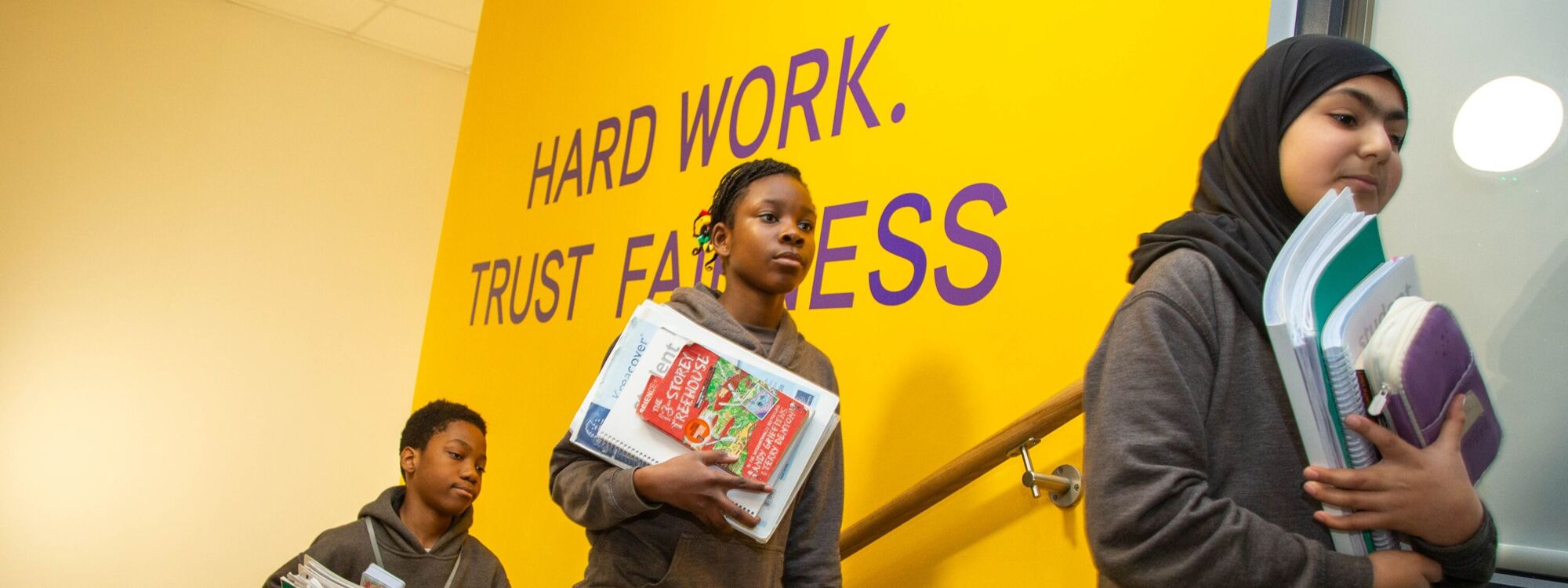- Home
- About Dixons
- Our history
Our history

Our trust was built around the high-performing Dixons City Academy in Bradford, which opened in 1990 as one of only fifteen City Technology Colleges nationally. CTCs were the first state-funded schools independent of local authority control, a model which became the template for Labour’s academy initiative a decade later.
In 2009, Dixons City was invited by the DfE to take on Rhodesway School, which was at the time rated in the bottom ten schools nationally for value added and had languished in Special Measures for a record two consecutive inspections. Today, Dixons Allerton has a new building and a strong culture, includes an all-through primary element, and is now rated Good by Ofsted.
Always at the cutting edge, from 2012 we embraced the Free School initiative, opening Dixons Trinity and Dixons Music Primary that year and Dixons McMillan two years later. All three are graded Outstanding by Ofsted, with Dixons Trinity holding the accolade of being the first secondary free school in the country to be so. As such, it attracts many visitors nationally and internationally to learn how it achieves some of the very highest Progress 8 scores in the country for both pupil premium students and others.
From 2014 to 2016, we adopted a further three sponsored academies into our trust. Dixons Marchbank Primary and Dixons Manningham Primary were inherited from two processor schools in special measures, and both jumped two Ofsted grades to Good in their first inspection. Both schools have gone from strength to strength, building their success from Early Years and KS1 upwards.
Dixons Kings was taken in as a struggling local free school carrying two judgements of Requires Improvement, together with difficulties in financial governance. It achieved Outstanding in its first inspection as a Dixons academy, and has achieved a strong academic performance since, fully reflecting our focus on high-value qualifications and exceptional progress, including for pupil premium students.
Our first academy in Leeds, Dixons Trinity Chapeltown, opened in temporary accommodation to Reception pupils in 2017, and its first cohort of Year 7 students a year later. It is modelled on its sibling academy in Bradford and was rated Outstanding in 2021.
In July 2018, Dixons Cottingley joined our trust from the former Samuel Lister Academy and later that year, we took our second step into Leeds at Dixons Unity, formerly Swallow Hill Community College. Both schools have progressed tremendously in their time with us, in spite of the challenges presented by the pandemic.
In 2019, we opened our Sixth Form Academy in the old Douglas Mill building in Bradford as our school-based sixth forms had become increasingly oversubscribed. Like all Dixons academies, the Sixth Form Academy is focused on high expectations, is values driven, and aims to provide an education that is second to none. It is a place for students to learn, to develop themselves as people, to work hard and to enjoy their Sixth Form experience – all the time preparing them to be successful at university or a real alternative.
In 2021, we expanded to the North West, sponsoring our first two academies from Special Measures in Liverpool, Dixons Fazakerley and Dixons Broadgreen (the former Fazakerley High School and Broadgreen Green International School respectively). On 1 January 2022, we incorporated Manchester Health Academy, Single Academy Trust, as Dixons Brooklands Academy, our first school in Manchester.
Dixons Croxteth, our third school in Liverpool, joined the trust in 2022 and we opened a new free school in Manchester, Dixons Newall Green in September 2023. In 2027, we will be opening a new free secondary school and sixth form.
Visit the Dixons Academies Trust website


































